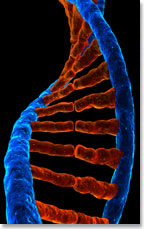 From a physiological perspective, Dr. Evarts Loomis, has separated fasting into four distinct stages. The duration of each stage is determined by how much toxicity the participant has.
From a physiological perspective, Dr. Evarts Loomis, has separated fasting into four distinct stages. The duration of each stage is determined by how much toxicity the participant has.
Stage one is a period of general excitation of the involuntary nervous system, major detoxification and increased electrical activity, which can be observed with an EEG (electroencephalogram). Blood pictures reveal an increased number of white blood cells which occurs as serum fats are lowered and thinner blood permits increased oxygenation of tissues. This stage lasts about three days, although the detoxification and increased oxygenation continue throughout the fast.
Stage two is a time of body toxicity reduction, acidosis, (excessive acid), hypoglycemia (low blood sugar), psychomotor depression (fatigue or loss of energy), and loss of appetite. Immune function improves, partially because the digestive tract is not inflamed due to allergic food reactions. Stage two begins between three and seven days. The length of the stage depends on the toxicity of the participant.
Stage three is a normalization period marked by a feeling of increased well-being that surpasses any preexisting the fast. This state is generally reached during the second week of the fast and lasts about a week, but can occur earlier in people with less toxicity.
Stage four is usually accompanied by a vast improvement in energy, clarity of mind and a heightened sense of well-being. Stage four begins anywhere from four days to seven days depending on the toxicity of the participant.
Once stage four is reached, it generally lasts throughout the remainder of the fast. As you examine the stages outlined above, notice how the timetable varies for the onset and duration of each stage. For individuals with high levels of toxicity, the heightened sense of well-being referred to in stage four may not occur for two weeks or longer. On the other hand, someone who has fasted numerous times before and kept their body free of toxins may experience stage four within two to three days.
The level of toxicity and an individual’s overall health prior to fasting is directly related to how uncomfortable the fast will be and how long the discomfort will last. Anyone considering fasting should consult a physician and a nutritionist who advocate fasting. A physician can conduct a physical examination to assure the fast is appropriate and a nutritionist can run tests and make sure that blood work shows optimal health and a sufficient supply of vital nutrients. A nutritionist can make dietary, supplemental and lifestyle recommendations both before and after the fast and create a detoxification program prior to the fast to reduce toxicity.